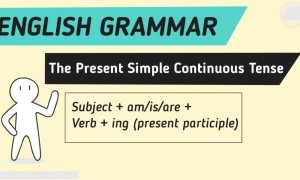01、an awful mess
烂摊子
“烂摊子”可不是指“破烂的摊子”,而是指“一些难以处理的、乱七八糟的事情”,可以用an awful mess表示。
The manager resigned suddenly, leaving an awful mess.
经理突然辞职,留下个烂摊子。
对话
A:I'm not here to deal with this awful mess.
我不是来收拾这个烂摊子的。
B:You should learn to handle problems.
你应该学会解决问题。
单词shambles也表示“混乱的局面;一片狼藉”
收拾烂摊子可以这么说:
deal with the awful mess 收拾烂摊子
pick up the pieces 收拾残局
clear up the mess 整理混乱局面

02、a disapproving look
脸色很难看
这里的“难看”指的并不是ugly“丑的”,而是用来形容一个人因为不同意某事或对某事不满而露出的神情,可以表示为a disapproving look。
There was a disapproving look on the boss's face after he listened to Tom's report.
听了汤姆的报告,老板脸色很难看。
对话
A:I think our company has financial problems.
我觉得咱们公司财政有问题。
B:Hey,stop saying that.There is a disapproving look on our boss's face.
嘿,别那么说了。咱们老板的脸色很难看。
03、far from being an expert
外行
“外行”和outside可没有关系,它其实就是“内行,专家”的反义词,所以可用far from being an expert表示。
Don't ask Jack to do the job.He is far from being an expert.
别让杰克做那个工作。他是个外行。
对话
A:Could you complete the task alone?
你能独自完成任务吗?
B:No.I'm far from being an expert.
不行,我可是个外行。
“外行”还可以用layman表示
另外,可以用amateur表示“业余爱好者”
04、backbone
主心骨
backbone的原意是“脊椎”,是人身体的重要组成部分,引申为“主心骨”的意思。
Manager Wang is our backbone.We all report to him.
王经理是我们的主心骨。我们都向他汇报工作。
对话
A:I want to resign next week.
我想下周辞职。
B:Are you kidding me?You're our backbone.
你开玩笑吧?你可是我们的主心骨。
05、frown on
看不惯
“看不惯”并不是说“不习惯看”,而是指“对…看不顺眼,对…不满”,可用frown on表示,其中frown有“不赞成,反对”的意思。
Jack frowned on Mary's affected action.
杰克看不惯玛丽做作的表现。
对话
A:My parents just frown on John.
我父母就是看不惯约翰。
B:Why?I think he's a good guy.
为什么?我觉得他是个好人啊。
英语中还常用cannot bear the sight of
和hate to see来表达“看不惯”
06、irresponsible and sarcastic remarks
风凉话
“风凉话”可不能直译为cold wind words,这个词用来形容有人幸灾乐祸,在严肃的场合说无意义且带讽刺意味的话,可以用irresponsible and sarcastic remarks表示,其中irresponsible的意思是“不负责任的”,sarcastic意为“讽刺的”,而remark表示“评论”。
Mary just likes to make irresponsible and sarcastic remarks on serious occasions.
玛丽就是爱在严肃的场合说风凉话。
对话
A:The fact is that our company is going bankrupt.
事实是我们公司快要倒闭了。
B:Don't make irresponsible and sarcastic remarks.
别说风凉话了。
表达中的remarks还可以用comments来替换。







